Roundtable: Writing as Advocacy
This roundtable gathers a diverse group of humanists who employ writing as a tool for advocacy of various forms. Drawing on their personal experiences, speakers will address questions such as:
How can creative practices renew us as writers and empower us to ask bolder questions in our scholarship?
How can we use research and writing skills to identify and advocate for the university we believe in?
How do we connect writing and research with our values?
How do we create communities of practice stemming from our scholarship?
How might our scholarship translate into meaningful change?
How do we write ourselves into thriving as humanities practitioners?
How can we develop practices that connect our research with where those topics live in the world today?
This roundtable is open to all.
The roundtable and a social hour immediately following are in the Women’s Building Formal Lounge.
Speakers

Margaret (Maggie) Nettesheim Hoffmann is the associate director of career diversity for the Humanities Without Walls (HWW) consortium, headquartered at the Humanities Research Institute at the University of Illinois, Urbana-Champaign, and she is based at Marquette University. As a part of her work for HWW, Hoffmann is responsible for guiding HWW’s career diversity programming dedicated to transforming graduate education for consortium partner schools and beyond. She is completing a PhD in United States history at Marquette, where she researches the history of American philanthropy, capitalism and Progressive-era political discourses critical of private foundation giving.
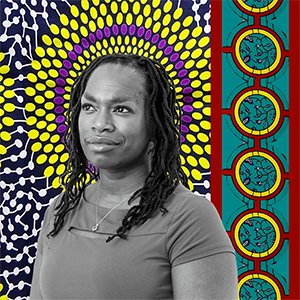
Michelle Daniel Jones is a sixth-year doctoral student in the American studies program at New York University. Her dissertation focuses on creative liberation strategies of incarcerated women and the Alabama Prison Arts and Education Project. She is a founding member and board president of Constructing Our Future, a reentry and housing organization for women created by incarcerated women in Indiana. Daniel Jones is co-editor with Elizabeth Nelson of Who Would Believe a Prisoner? Indiana Women’s Carceral Institutions, 1848–1920 (New Press, 2023), an edited volume of history by incarcerated students in the Indiana Women’s Prison History Project. Daniel Jones is also an artist, and she co-authored an original play with Anastazia Schmid, The Duchess of Stringtown, that was produced in Indianapolis and New York City. Her installation about the weaponization of stigma, “Point of Triangulation: Intersections of Identity,” ran at the New York University, Gallatin Galleries, the Beyond the Bars Conference at Columbia University, the African American Museum in Philadelphia and as a Mural Arts of Philadelphia permanent mural.
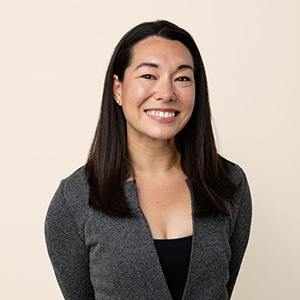
Ashley Cheyemi McNeil, PhD, is a public scholar and humanist with 10+ years experience working with learners, scholars and community partners to share stories and research. She is currently the director of education and research at Full Spectrum Features, an arts/media non-profit that works to uplift stories from marginalized communities, where she supports the team in community collaboration, development strategy and fundraising as it relates to Full Spectrums’s K–12 educational projects and learning initiatives. In all her work, Dr. McNeil leads from an understanding that stories about being and belonging shape individuals, communities and generations. Her academic training is in literary studies and American studies, in which she earned a bi-national dual-PhD from Georgia State University and the Obama Institute for Transnational American Studies at Johannes Gutenberg University in Mainz, Germany. She was a Mellon Foundation Postdoctoral Fellow at the University of Iowa, where she helped build an interdisciplinary humanities graduate program, and she was a Leading Edge Fellow with the American Council of Learned Societies.
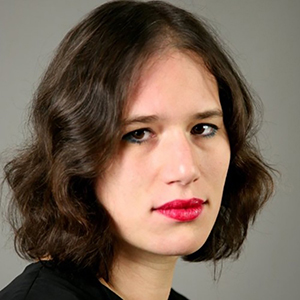
Katja Perat, PhD, is a Slovenian novelist, essayist and poet, and an assistant professor of writing at University of Alaska–Anchorage. Perat’s poetry collections — The Best Have Fallen (Najboljši so padli, 2011) and Value-Added Tax (Davek na dodano vrednost, 2014) — have received numerous literary accolades, including the both the Best Debut Award and the Kritiško sito Award, an award bestowed by the Slovenian Literary Critics’ Association for best book of the year. Her 2018 novel The Masochist (Mazohistka), a story about the Austro-Hungarian Empire at the turn of the century that ponders the limits of women’s desire and freedom against the backdrop of ethnic, class and gender tensions in an empire which hadn’t yet perceived that its decline had already begun, was translated into English in 2020. Perat earned a PhD in comparative literature for international writers at Washington University in 2022.
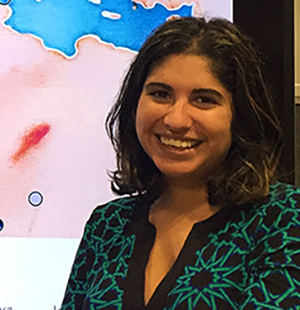
Roopika Risam, PhD, is associate professor of film and media studies and of comparative literature at Dartmouth College. She has published and co-edited four books on postcoloniality, intersectionality, and South Asian and Black digital humanities, and her current book project, “Insurgent Academics: A Radical Account of Public Humanities,” under contract with Johns Hopkins University Press, traces a new history of public humanities through the emergence of ethnic studies. Risam is principal investigator of the Digital Ethnic Futures Consortium (DEFCon), and is currently developing The Global Du Bois, a data visualization project on W.E.B. Du Bois. Risam also received the Massachusetts Library Association’s inaugural Civil Liberties Champion Award for her work promoting equity and justice in the digital cultural record.
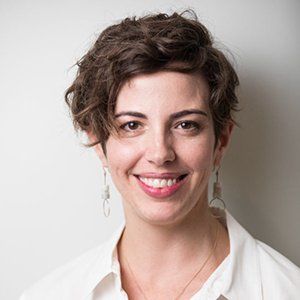
Katina Rogers, PhD, is an independent scholar, editor and educational consultant, working with institutions to design and implement structures that are creative, sustainable and equitable. She has over a decade of experience as an administrator, researcher and faculty member, and is the author of Putting the Humanities PhD to Work: Thriving in and beyond the Classroom (Duke University Press, 2020). Rogers has recently served as co-director of the Futures Initiative at CUNY, as well as co-director of the CUNY Humanities Alliance and director of programs and administration of HASTAC. She has previously worked for the Modern Language Association, the Scholarly Communication Institute and the Alfred P. Sloan Foundation. She earned a PhD in comparative literature from the University of Colorado–Boulder.
RSVP

